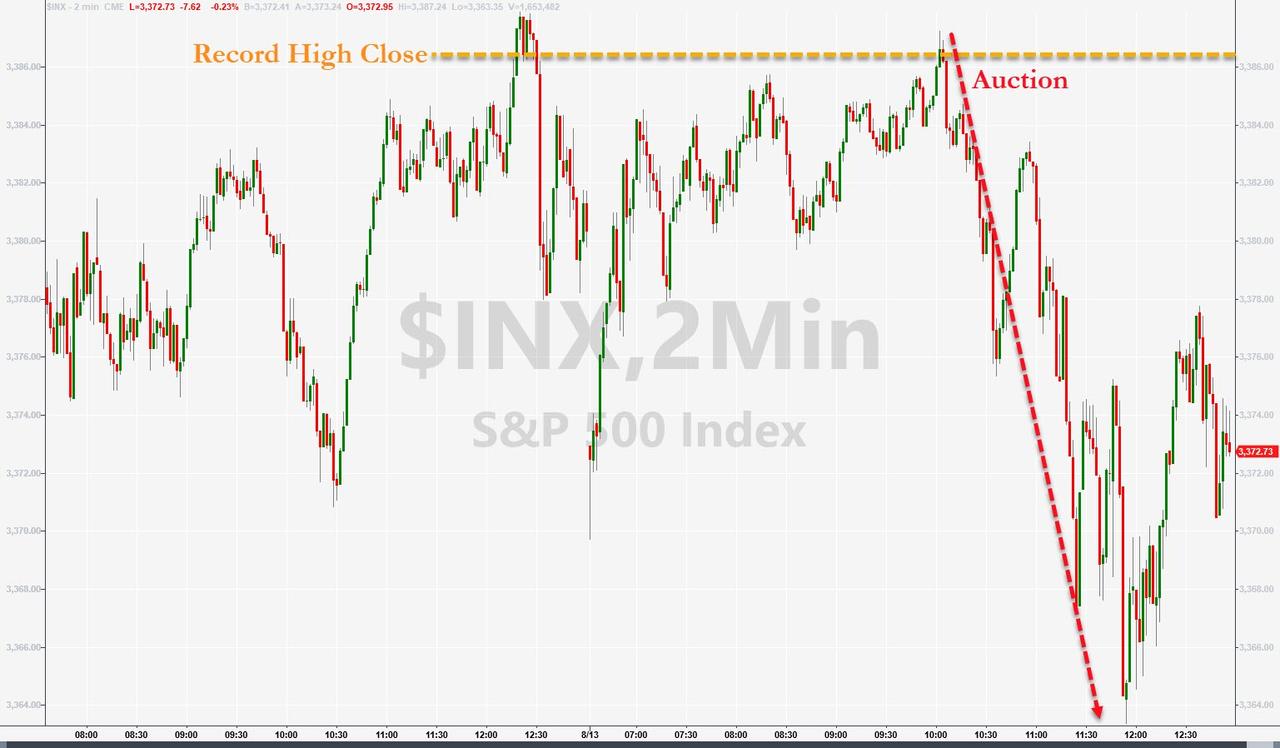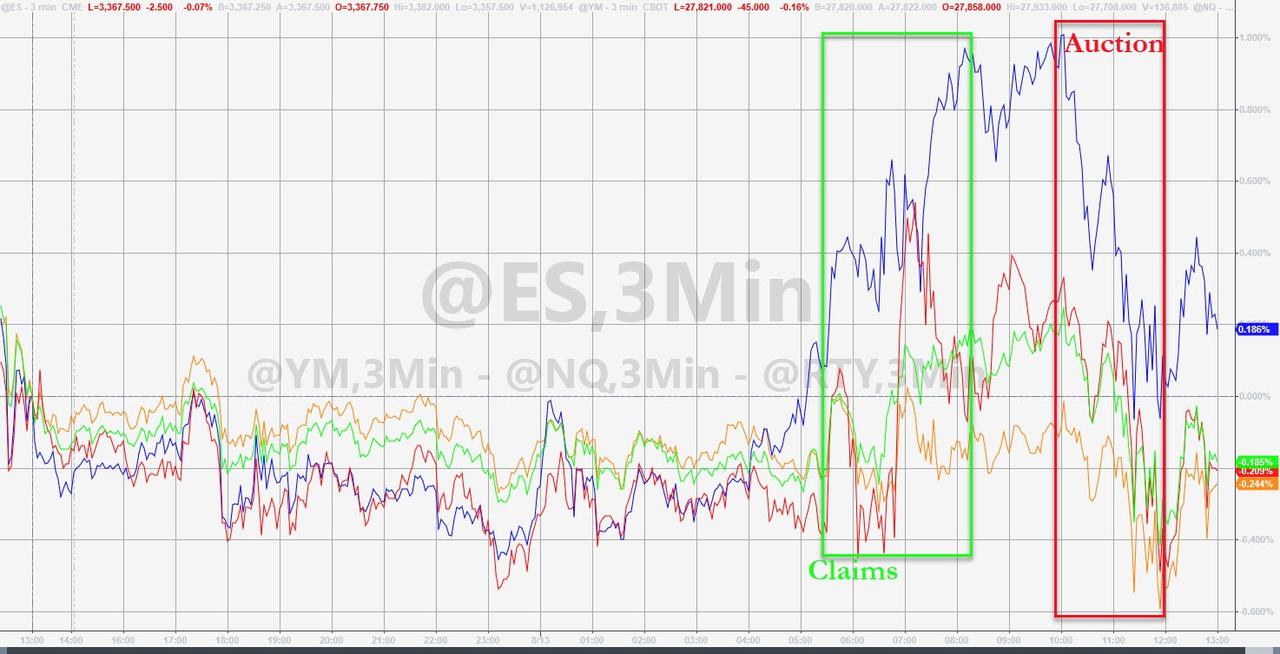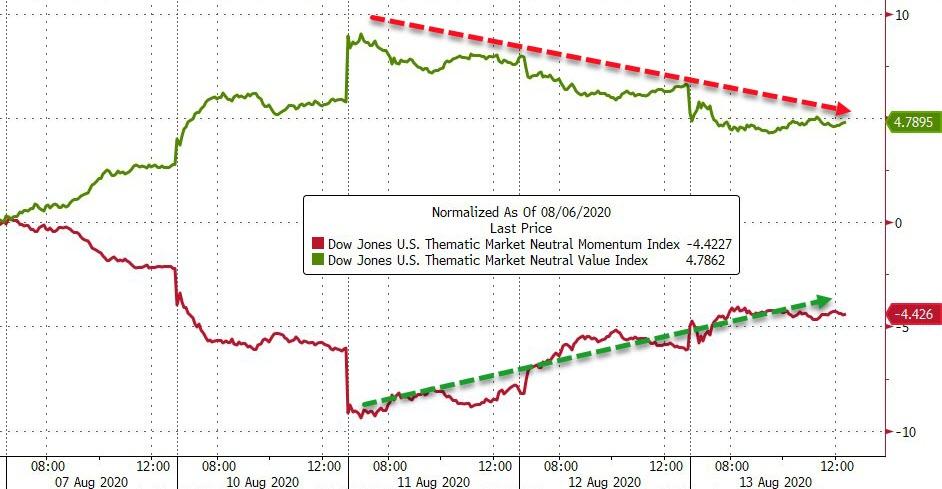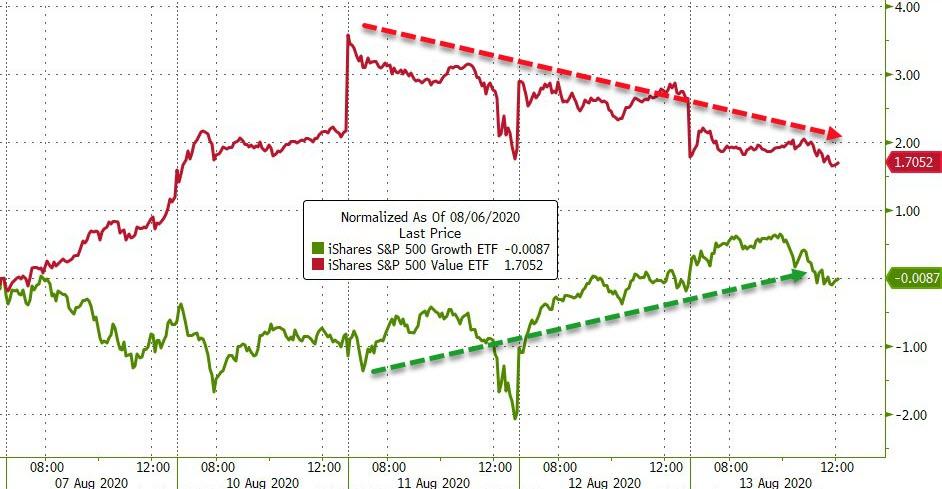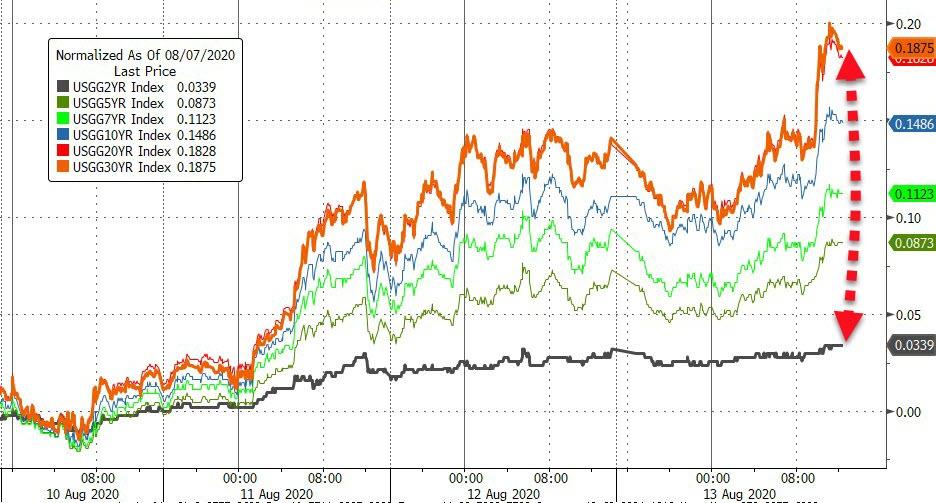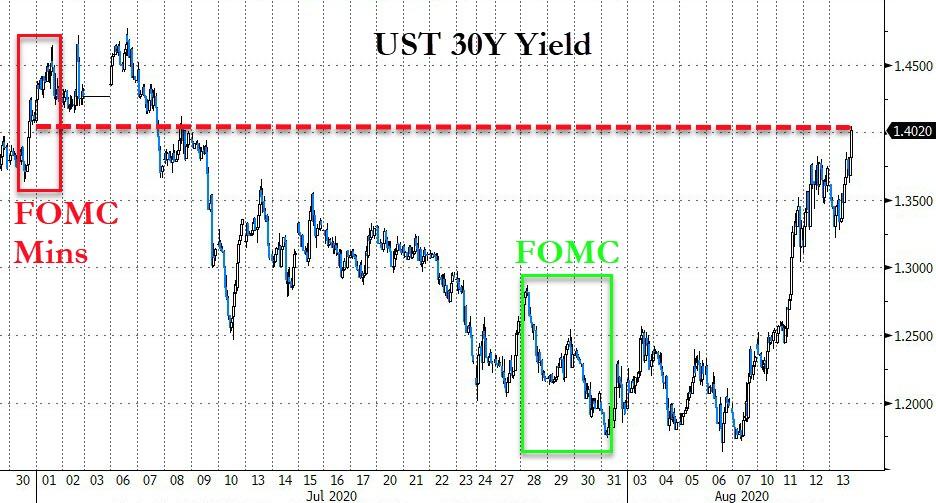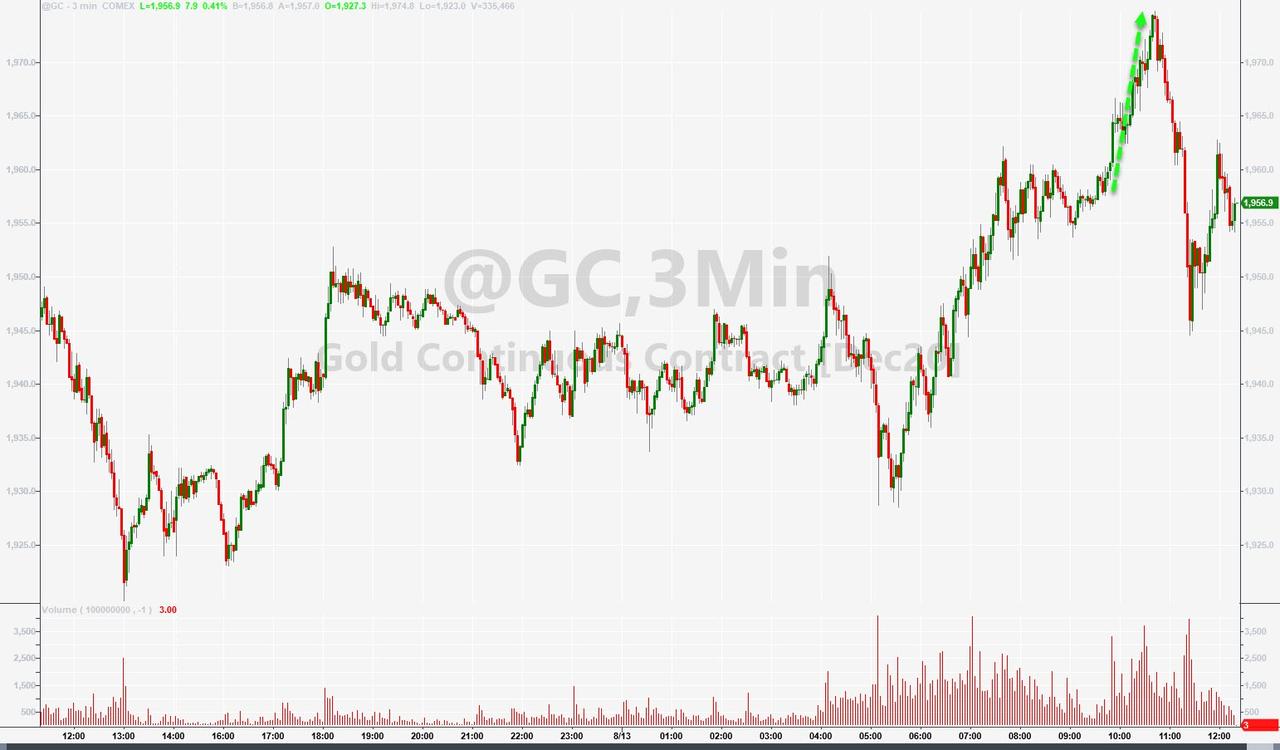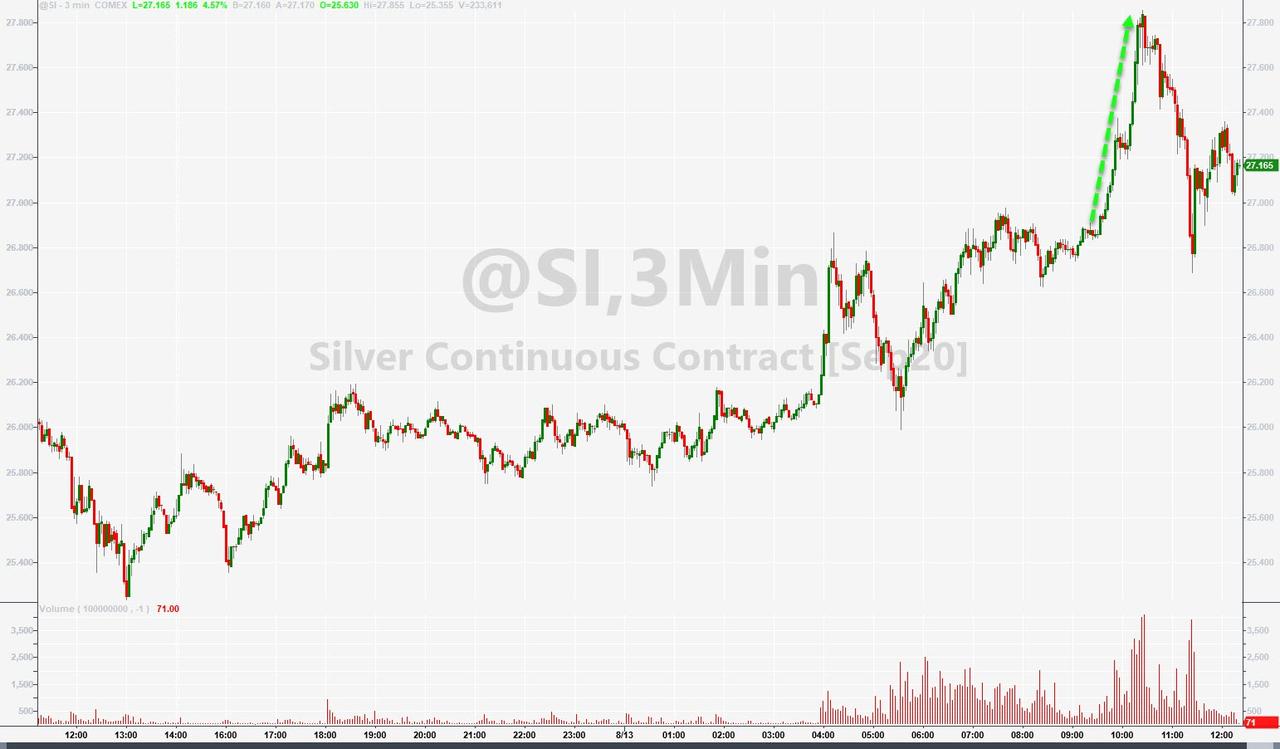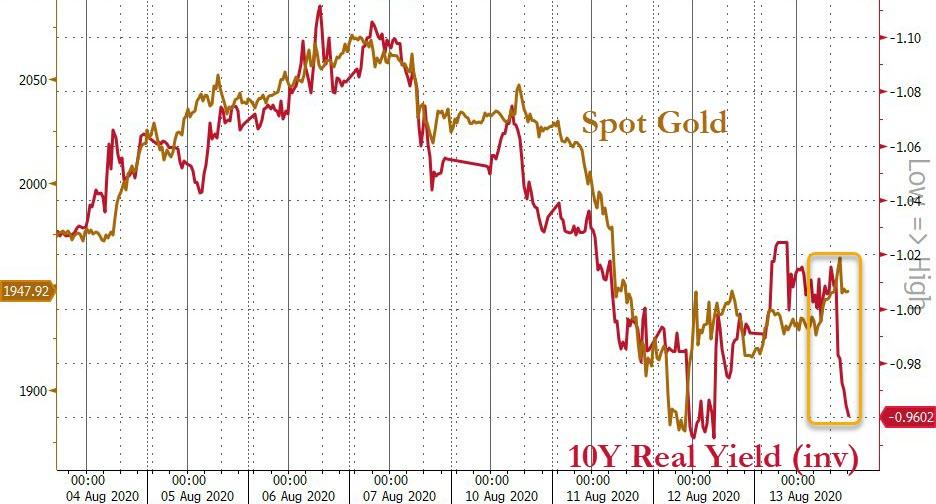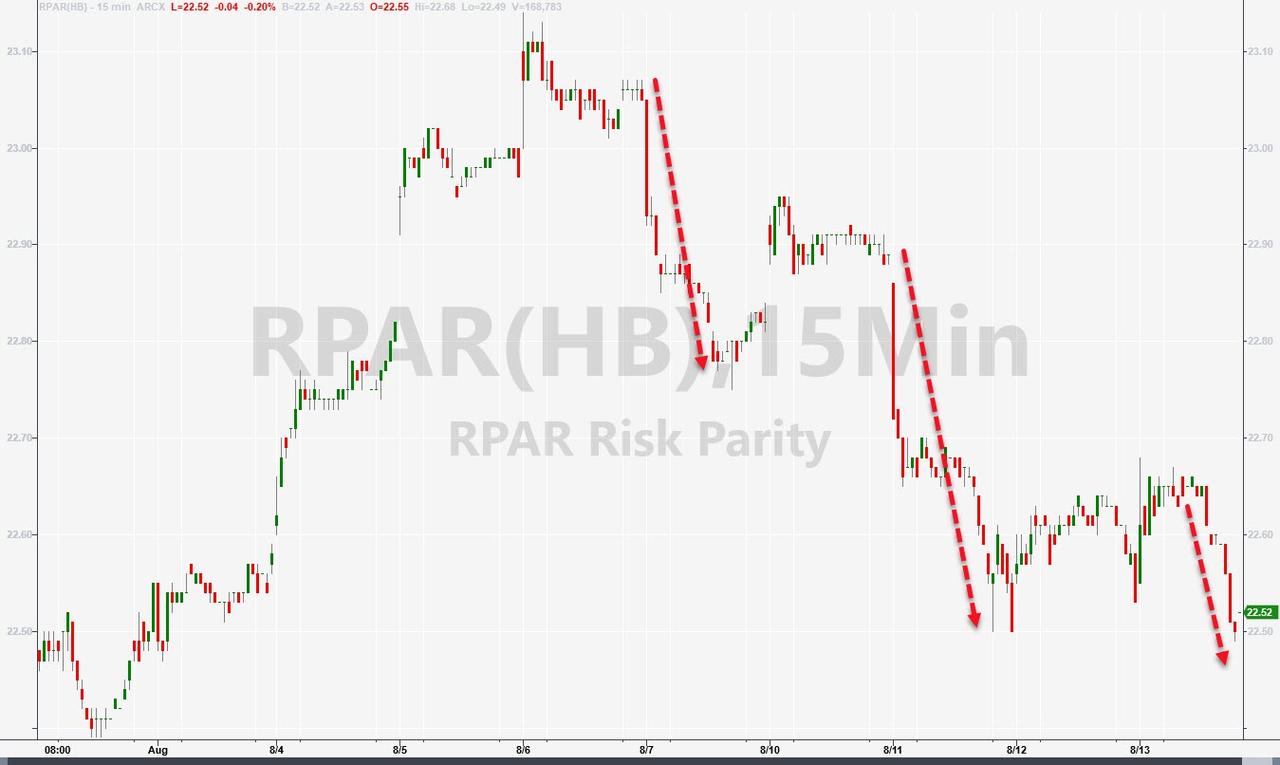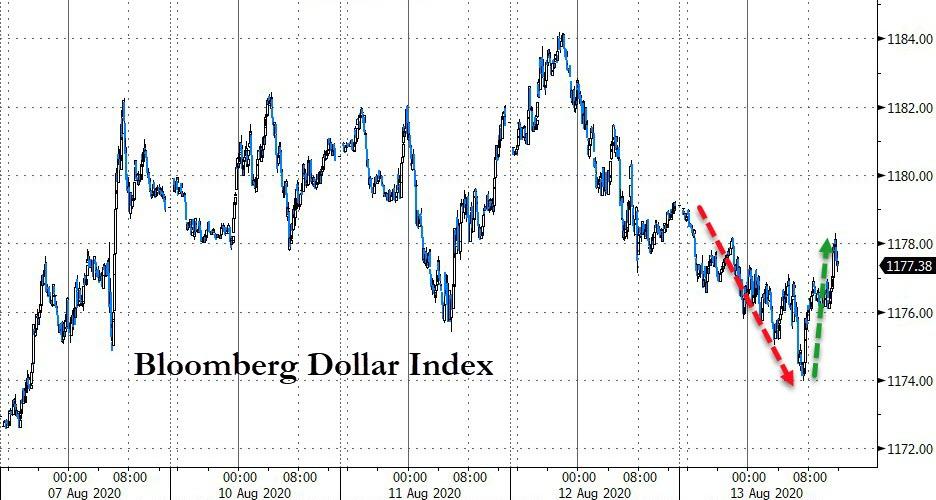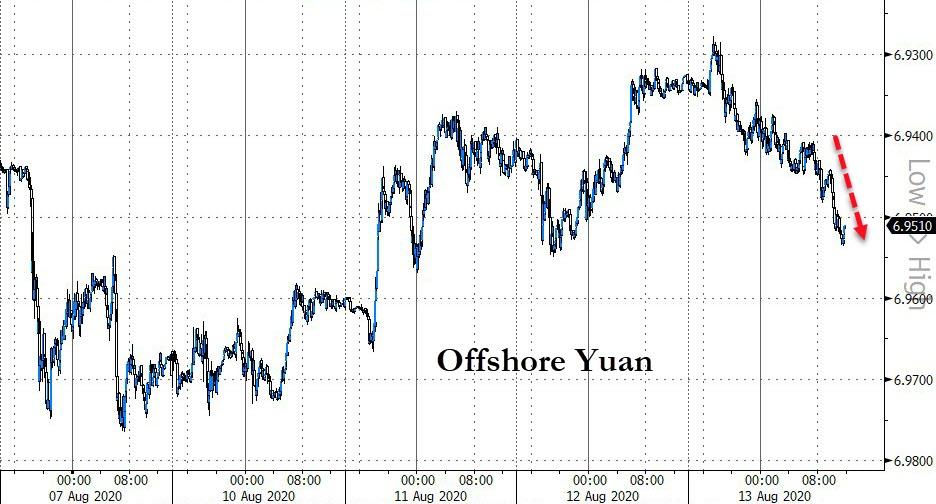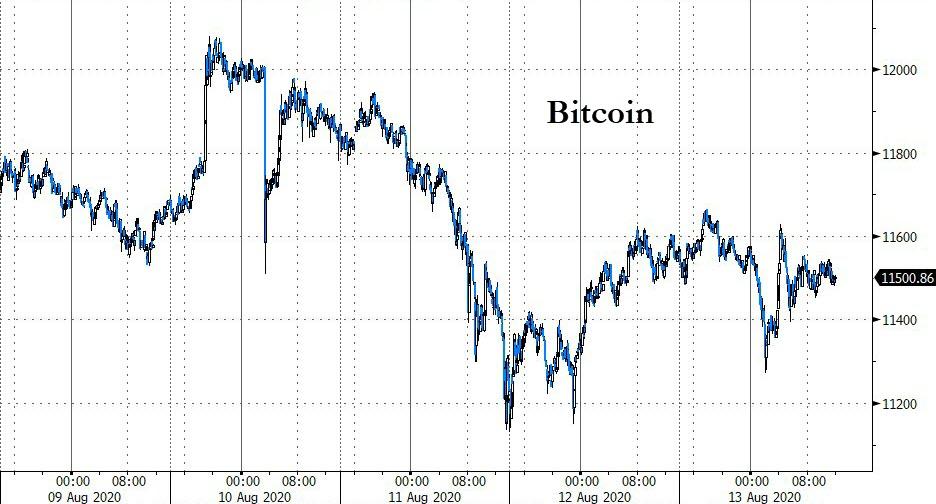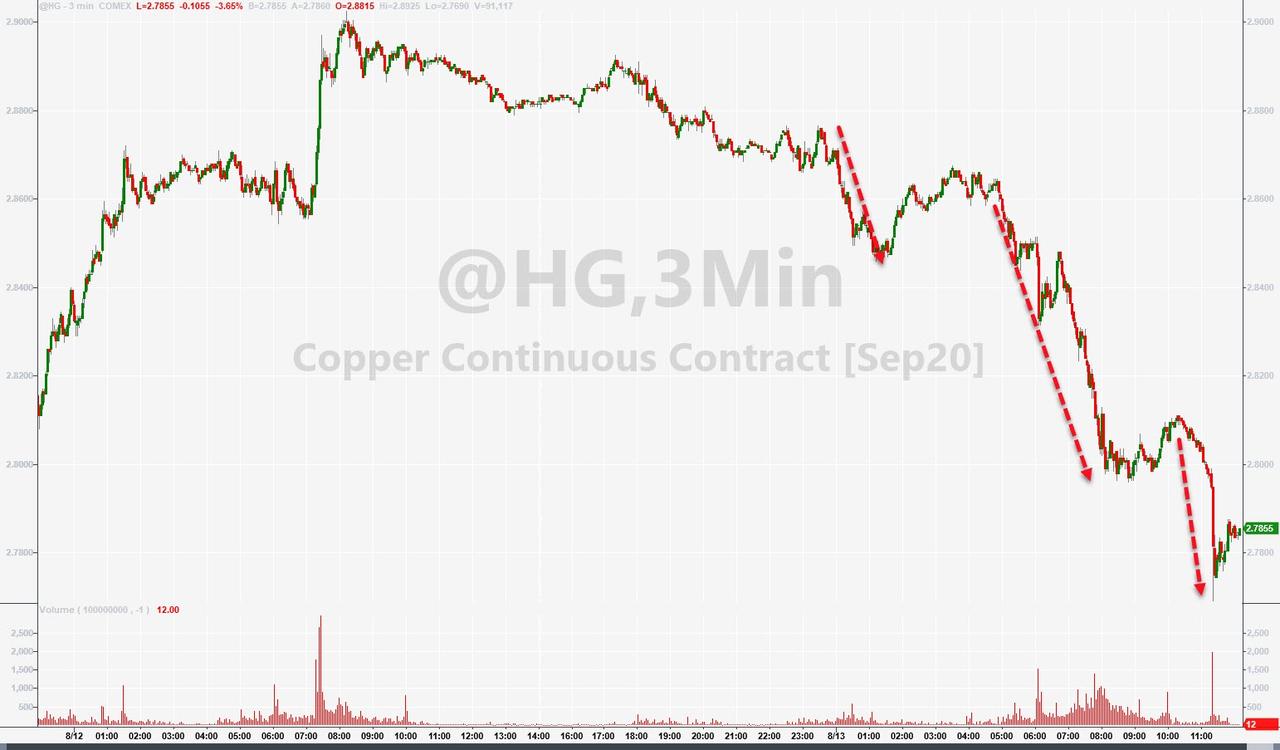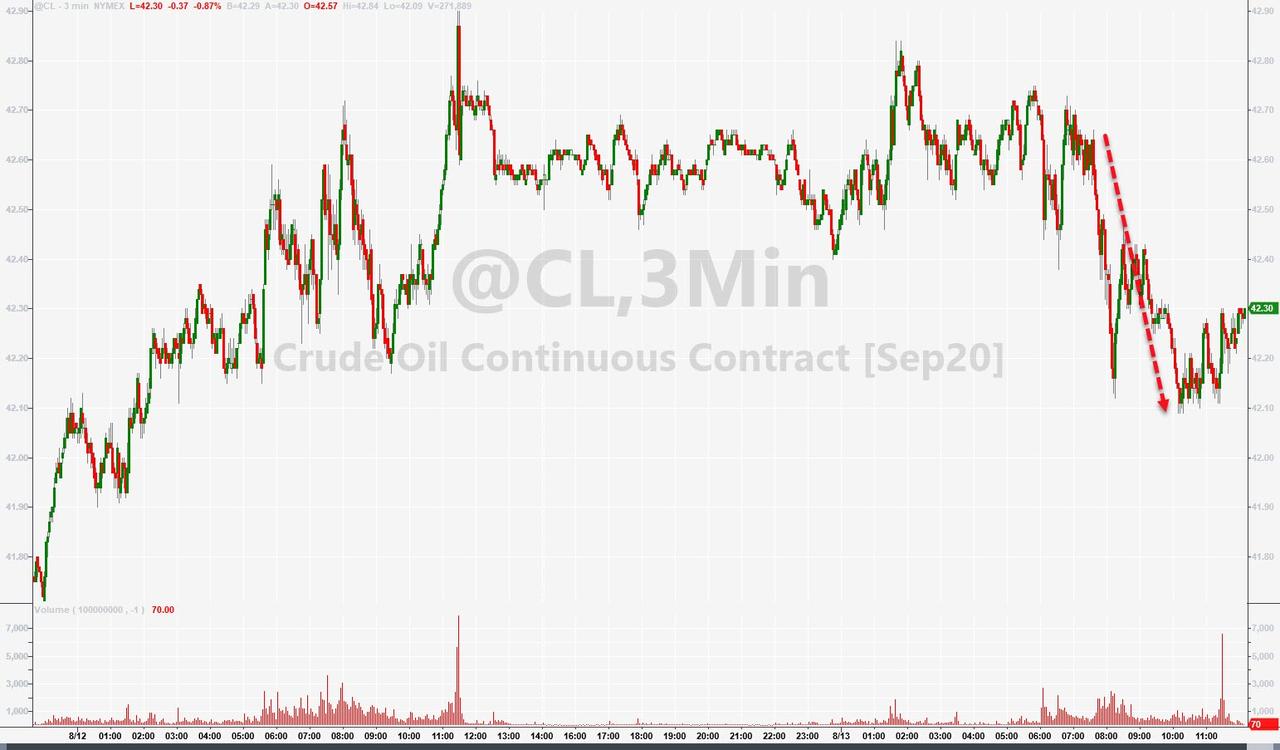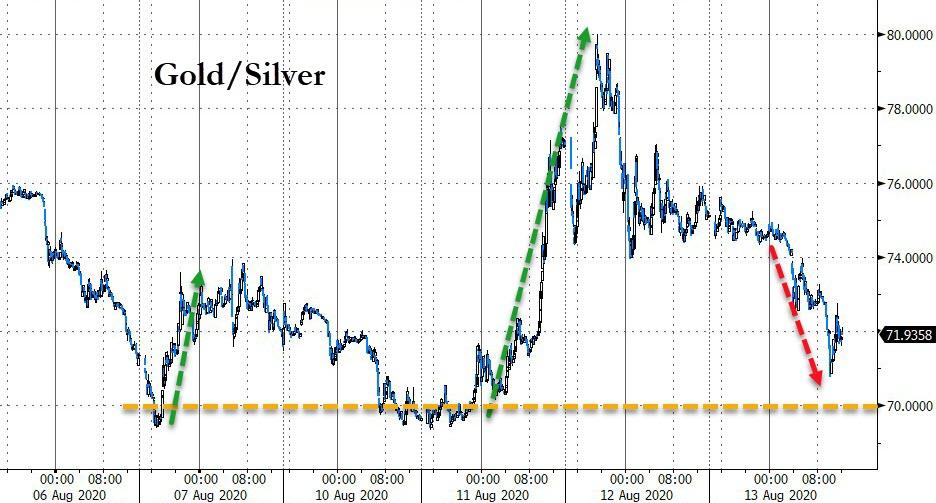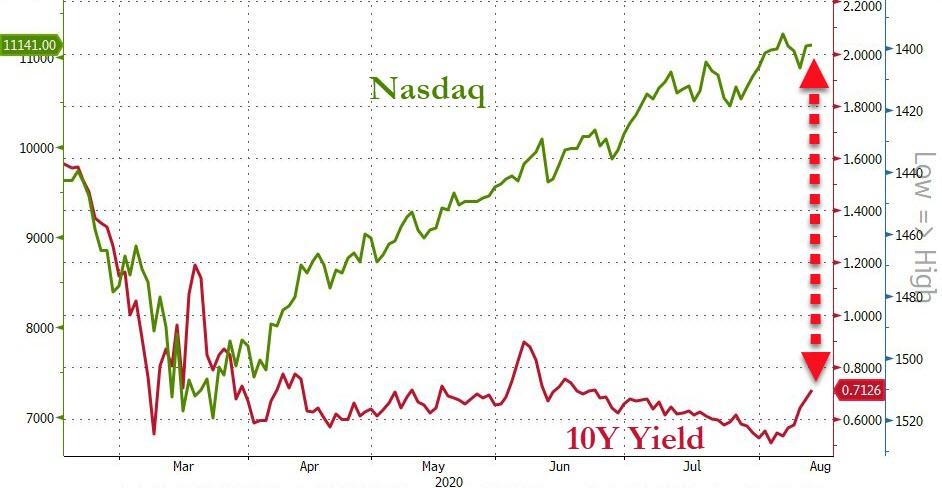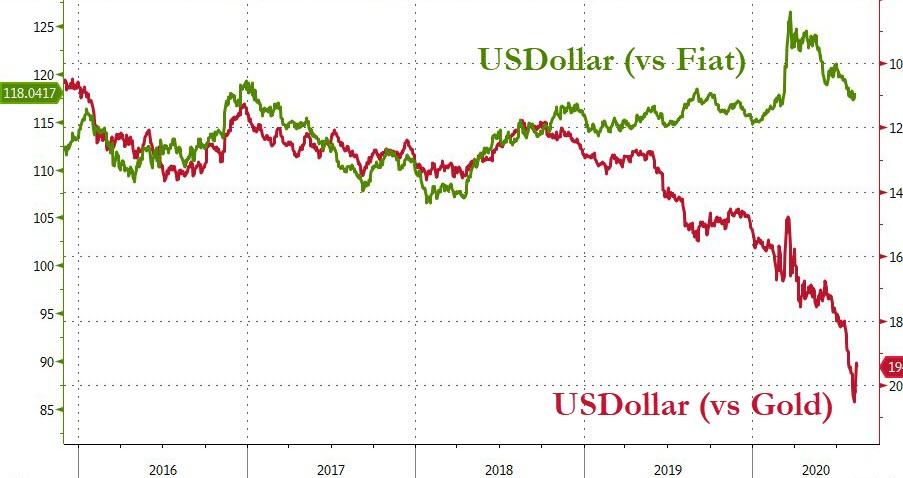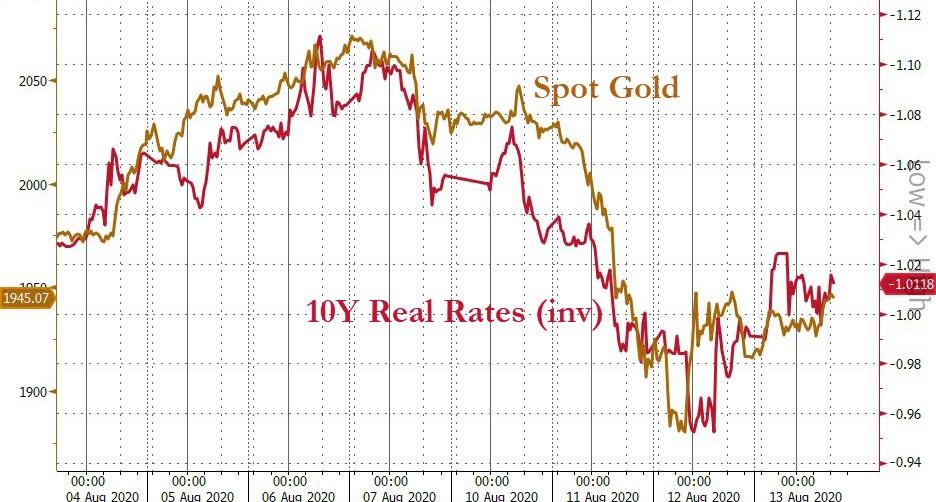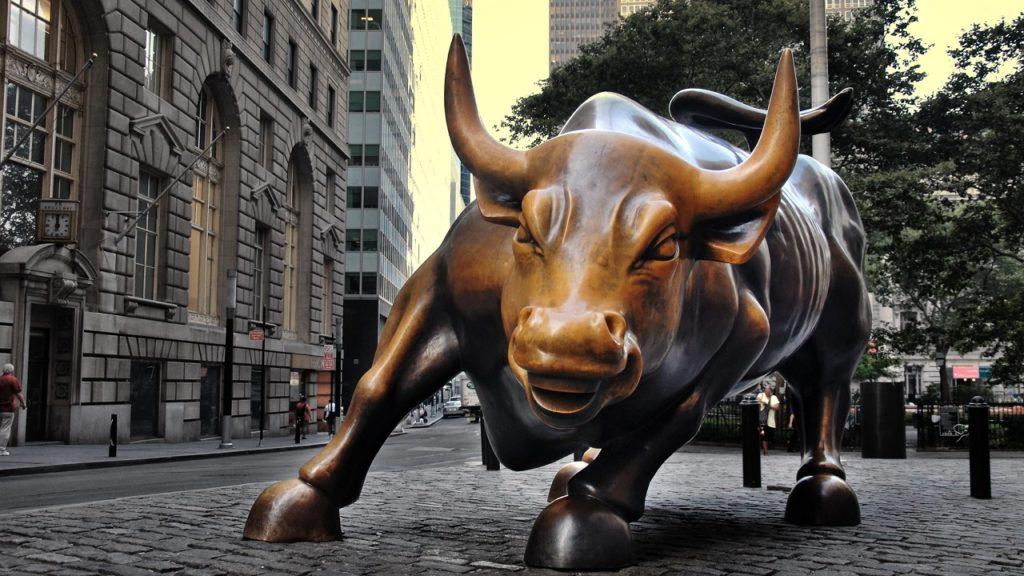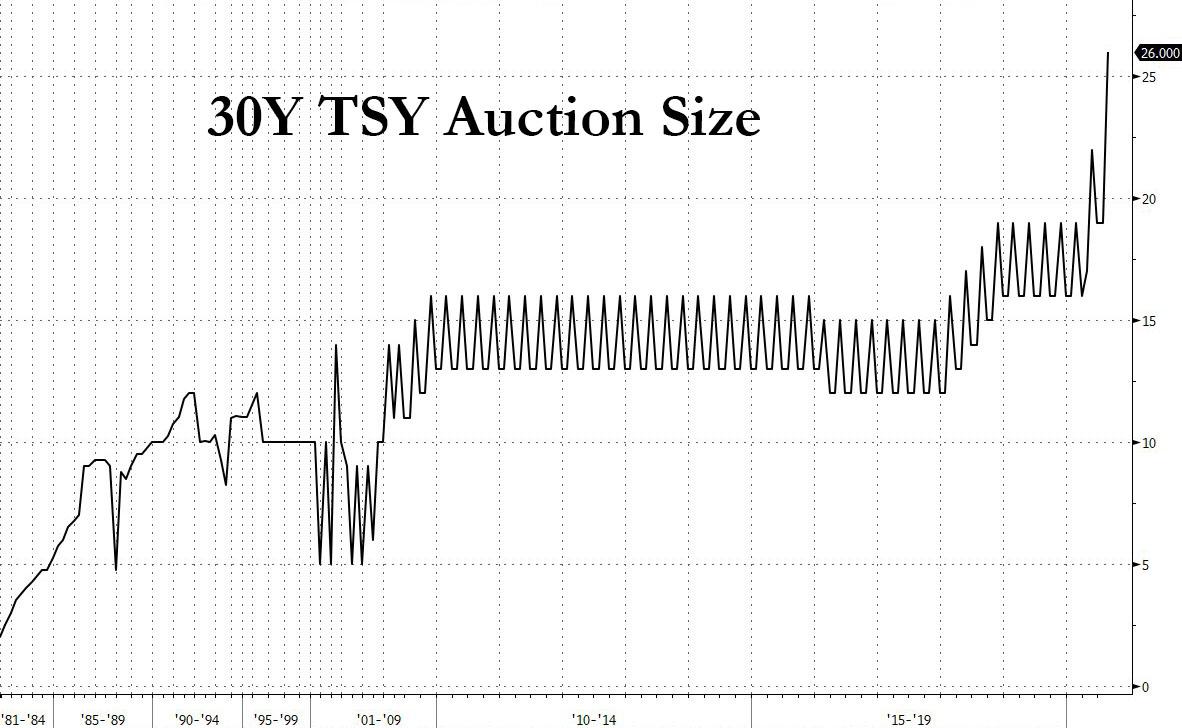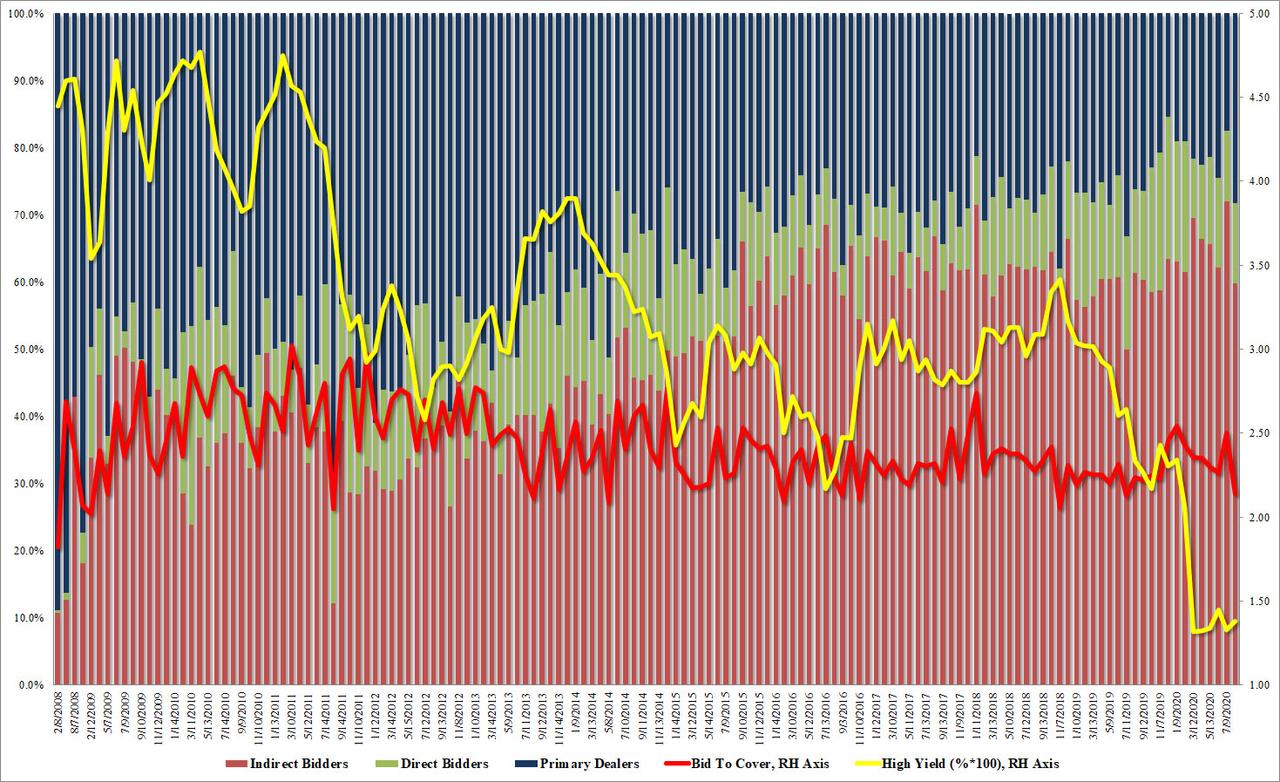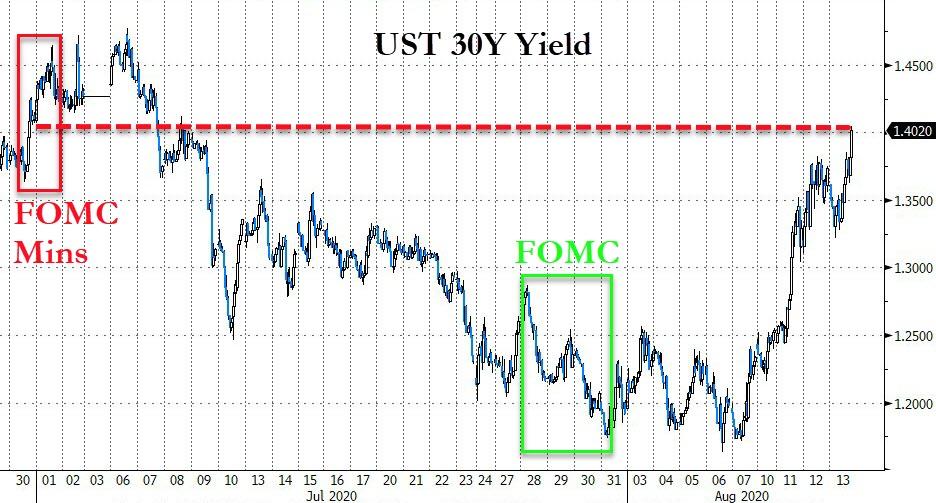Bonds & Stocks Battered After Bombed Auction, Silver Soars
Tyler Durden
Thu, 08/13/2020 – 16:00
Everything was lining up nicely for a new record high in the S&P 500 this morning after the better than expected claims data (only 963,000 Americans filed for first time claims last week!!)… and then the 30Y auction hit (at 1400ET) and was a disastrophe coinciding with a spike back above the record closing high for the S&P…
Just one ‘wafer-thin mint’ more of fiscal and monetary largesse…?
Triggering weakness in bonds and stocks and a bid for gold and silver…
Nasdaq managed to bounce back from its drop but the rest of the US majors ended red…
The momo/value rotation un-rotation accelerated…
Source: Bloomberg
Value stocks continued to sink after their surge earlier in the week…
Source: Bloomberg
Bonds were clubbed like a baby seal, with the longer-end up around 5bps (2Y unch)…
Source: Bloomberg
30Y Yields are back at the June FOMC Minutes release levels…
Source: Bloomberg
We do note that while this move higher in rates ‘feels’ large, it is of a smaller scale than the early June bear
Source: Bloomberg
And while bonds and stocks were hit, gold was bid on the auction ‘fail’ (though came back and steadied after)…
Silver followed a similar path but was strongly higher on the day…
There was a major divergence between real rates (spiked) and gold (spiked) after the auction chaos…
Source: Bloomberg
Mark Gutman (@MarkGutman9) noted this odd move:
“Interesting to see Gold up & Bonds down. Yields are kept low so there isn’t enough demand at the price. Fed will be forced to buy more to keep yields low, in turn pushing fair prices higher thus reducing demand even more – forcing the Fed to buy even more. Cycle of death.“
Of course, all this (falling bond and stock prices and rising vol) was bad news for Risk-Parity funds and may lead to some exaggerated swings as forced deleveraging takes place…
The Dollar ended the day lower but rallied as the SHTF this afternoon…
Source: Bloomberg
CNH weakened after Larry Kudlow’s comments…
Source: Bloomberg
Bitcoin trod water on the day, recovering from some overnight weakness…
Source: Bloomberg
Copper continued to tumble…
And oil ended lower…
The Gold/Silver ratio erased most of last week’s spike thanks to silver’s gains today, but stalled again around 70x…
Source: Bloomberg
Finally, is time up?
Source: Bloomberg
And it’s still a long way for bonds and stocks to ‘meet in the middle’…
Source: Bloomberg
via ZeroHedge News https://ift.tt/30RtcA2 Tyler Durden
